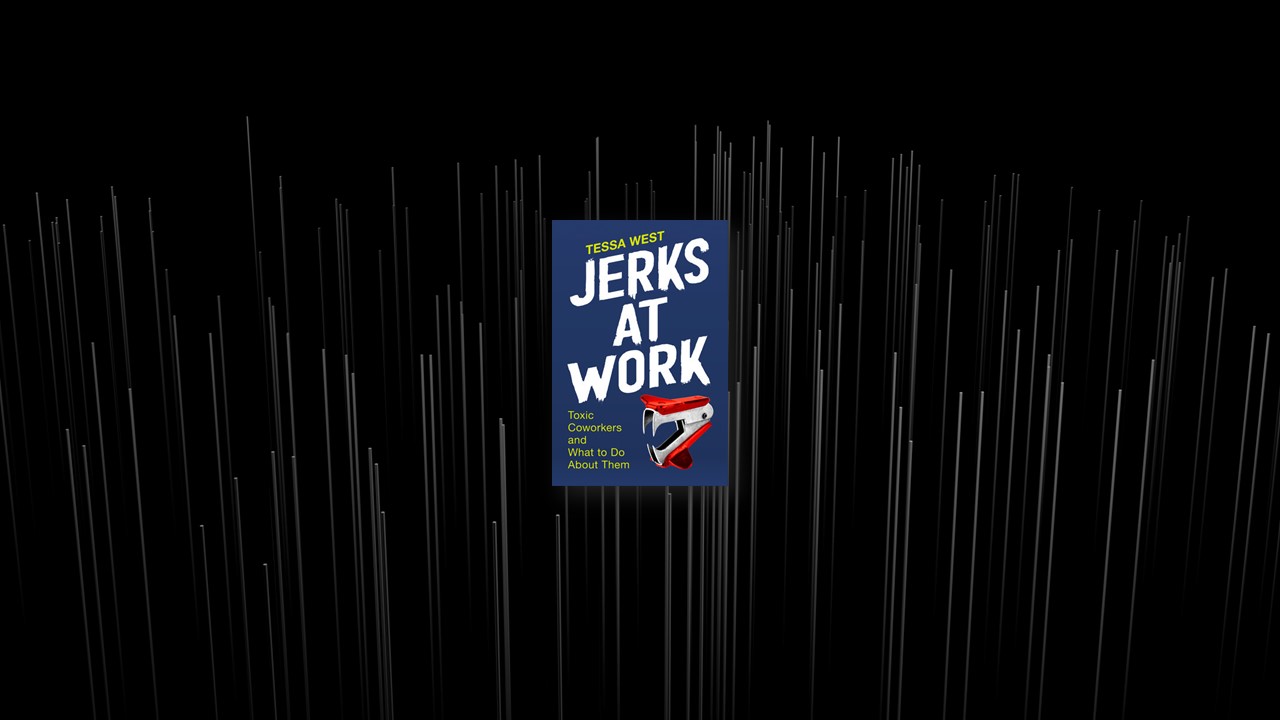Kiss Up/Kick Downer
They come to the workplace with a set of skills, including the ability to read a room. Kiss up/kick downers can tell—simply by observing how people behave toward one another—who has status and who does not.
It’s not hard to find a kiss up/kick downer in action, if you know where to look. They will have more meetings with the boss and show up to more opportunistic events (such as interest groups) than everyone else.
To beat a kiss up/kick downer, follow a few steps. First, find allies who aren’t friends or confidants. Allies are well-connected people who will help give you a reality check.
Second, find others who’ve been targeted by your kiss up/kick downer. Be careful when you approach people; don’t assume they are on your side.
Third, create psychological and physical distance from your kiss up/kick downer. Even moving a few chairs over in a meeting can help reduce your stress.
Fourth, before you meet with your boss, collect detailed data on your experiences. Make your report about your kiss up/kick downer’s behaviors, not about your feelings.
Fifth, after you meet with your boss, be patient and wait. Real change takes time.
If you are the boss, create rules that give everyone an equal shot. These rules will reduce the likelihood that people will kiss up and kick down to get ahead.
The Credit Stealer
Successful credit stealers are usually close colleagues. They are mentors, peers, and kiss up/kick downers on your teams.
Like other jerks at work, credit stealers start off small and work their way up. They usually cover their tracks and steal only under conditions that give them plausible deniability.
Credit stealers don’t just overclaim credit, they sometimes underclaim it. By appearing humble and generous, they convince their bosses and new hires that they make great allies.
Make sure the right people are granting you voice—they listen when you speak, and they remember what you say.
The best way to gain voice is to form a lot of advice ties. Be the person the boss turns to for help solving tough workplace problems. And when you do contribute, be solution focused, not problem focused. Lastly, lift up the voices of others who struggle with being heard.
The Bulldozer
Bulldozers are seasoned employees. They have experience, connections, and insider knowledge they can use to take over decision-making and render bosses powerless to stop them.
If they don’t have it already, the first thing bulldozers do is gain power. Some do this by asserting themselves very early on, others by bringing a unique skill that makes it difficult for the group to function without them.
Once in power, bulldozers will climb the chain of command to get their way. Many will use their well-established relationships to trash-talk their teams.
The first solution to being bulldozed is to learn how to speak up effectively at work. Assert yourself early, don’t allow others to interrupt you and hold the floor, and make your points short (within the one-minute mark).
Help others recognize bulldozing in meetings. Most of us don’t have a good sense for how long people talk. Using a talk time app can get everyone on the same page.
Put some steps in place so you don’t become dependent upon a bulldozer to get a job done. Rotate service roles and set up training programs so the group is less reliant on any one person to be successful.
The Free Rider
Free riders are socially savvy. Beware of coworkers who slack off but aren’t particularly disruptive and who have good reputations and social capital coming into the team. Often these people were known for churning out a ton of work at one point in their career but are now inclined to coast.
High-status people are most likely to get away with free riding. Some feel like they’ve worked hard enough and they’ve earned the right to coast, others work hard only when people are watching.
To solve free riding in teams, you need evaluation potential: the ability to sort out what each person has contributed to the group’s final product. Once you’ve established this, fairness checks can detect early warning signs of free riding.
Even if your group’s work is tough to plan out in advance, keep track of each person’s contribution as you progress through the day. Bosses easily lose track of who has done what, and they rely on team members to keep their biases in check.
If free riding has become contagious, putting people in a competitive mind-set can help curb the problem. Learning that you will be rank ordered is often enough to do the trick. When people learn their actual ranks, however, only top and bottom performers feel more motivated to work hard.
One of the simplest solutions to free riding is making people enjoy the process of work, not just the outcome. Autonomy over decisions, along with increasing group morale by rewarding small accomplishments along the way, can increase enjoyment.
The Micromanager
Micromanagers are easy to recognize and label, but there’s a lot going on under the surface. Ironically, micromanagers are also neglectful.
Neglect comes in many forms. Sometimes micromanagers neglect people (they keep those they micromanage in a rotation) and sometimes they neglect important work. The problem isn’t that they focus on details, it’s that they focus on the wrong details.
The first step in confronting a micromanager is to find out the answer to the question, Does the work I do here matter? If you’re arranging clothes by color, you might be better off leaving.
When talking to your micromanager, don’t open by criticizing them. They will respond with defensiveness, and you will respond by stonewalling. Instead, set up a meeting to talk about shared goals.
When you do bring up their behaviors, be as specific as possible. Broad generalizations will only feel like an assault on your boss’s personality.
Even if it pains you, set up frequent, short check-in meetings. Healthy relationships take a lot of maintenance. Communication gets better with practice, so expect these meetings to get easier with time.
The Neglectful Boss
Neglect can happen anytime in a career. Neglectful bosses often overpromise at the interview stage and then underdeliver at the ready-to-launch stage.
Neglectful bosses can be surprisingly knowledgeable about your progress when talking to their bosses. Why? They want to come across as “in the know.”
To handle a neglectful boss, your first step is to learn how to need-nudge: make small asks within a reasonable time frame.
Next, try to reduce some of your boss’s workload. Prioritize what you need help on and clearly communicate the order of priorities to your boss.
Don’t be afraid to ask for help from other experts at work when your boss isn’t available. Most bosses will be grateful.
The Gaslighter
Lying at work is common. We tell altruistic lies to make social interactions go smoothly and self-protecting lies to bolster our image and cover up our small indiscretions.
There are no good ways of detecting lies from watching how people behave. At best you will be slightly above chance at guessing whether someone is lying or telling the truth simply by how they behave when they talk to you. The best way to become a good lie detector at work is to seek out the truth.
Gaslighters differ from everyday liars in that they try to isolate their victims. They typically take one of two approaches: one, they make their victims feel like part of something special; or two, they make their victims question their self-worth.
Gaslighters are careful to cover their tracks. When they aren’t gaslighting you, they are busy trying to impress powerful people to protect themselves from future reputational damage.
Removing yourself from a gaslighter’s grip requires the help of other people. Slowly build up your social network, starting with those closest to you in status and rank, and find a social referent—someone who gets a lot of attention from their peers and is broadly connected to many people.
If opening up about your experience feels daunting, start small by asking for some general feedback.
Once a gaslighter is discovered, it is important for those in power not to become enablers. If a gaslighter approaches you to gossip, don’t indulge them. Gaslighters will often try to sabotage their victims through gossip.


